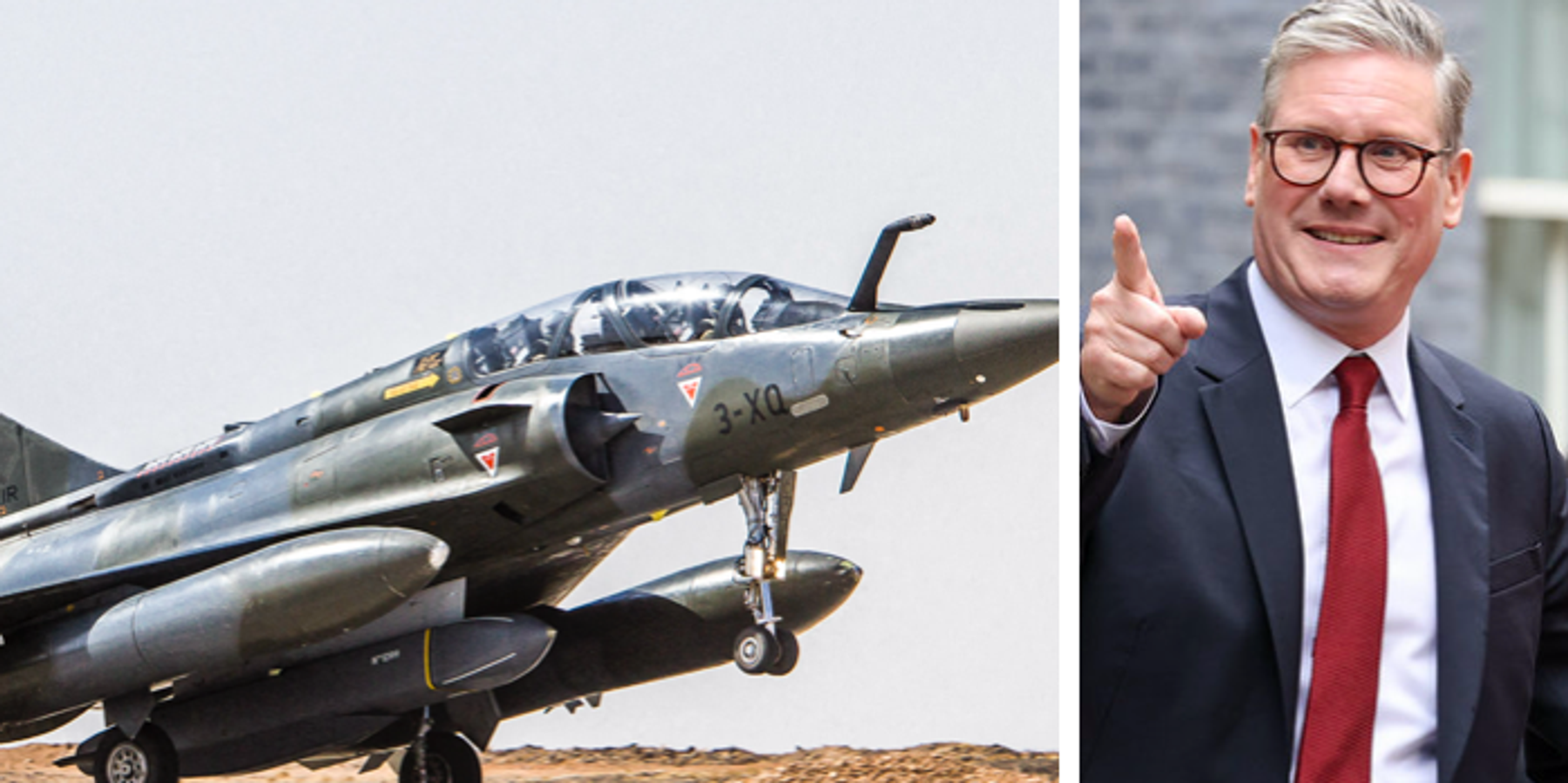The UK has apparently given the greenlight for Kyiv to use its Storm Shadow missiles for attacking inside Russia. While the British government has not commented publicly, the Ukrainian military used the missiles to strike Russia for the first time on Wednesday.
In keeping with most British military “decisions,” its actions Wednesday followed the Biden Administration’s approval to allow Ukraine to use its own long-range ATACMS in the same way.
The British government seems to have forgotten that two months from now, the Biden administration will no longer be in office and the Trump White House may not take kindly to what some of its future members see as British support for a preemptive Biden attempt to wreck Trump’s peace agenda in Ukraine.
From the point of view of Britain’s own security interests (which do not appear to play any part in British establishment thinking about Ukraine), British citizens just have to hope that after January the Russian government does not retaliate against the UK — for if it does, they may not receive much sympathy from Washington.
The official argument for the ATACMS and Storms Shadows decision is to put Ukraine in a stronger position before peace talks are initiated by Trump. Russia seems certain to try to gain as much territory as possible before these talks begin, and the Ukrainian armed forces are in serious danger of collapse.
This is a dangerous gamble, because the missiles (which are guided to their targets by U.S. personnel) risk infuriating Russia without giving really critical help to Ukraine. It is especially dangerous for the UK, because if Putin feels impelled to live up to its promises to retaliate without attacking U.S. interests and alienating Trump, he could well feel that the UK makes a safer target — it is at least a gamble based on rational calculations.
This is not exactly what the government and the British security establishment have been saying. Like some East European governments, and influential political voices in Western Europe, the British government is still talking of helping Ukraine “win” — not to achieve a better compromise.
Like the Biden administration, British and NATO language of the “irreversibility” of Ukrainian NATO membership, and the necessity of Russia leaving the Ukrainian territory it has occupied suggest opposition to any conceivable peace settlement that Trump could seek to achieve. If the UK is seen by Trump to be deliberately sabotaging his peace agenda, this will be hugely damaging to the American-British relationship, and put Britain in an extremely exposed position.
Such an interpretation by Trump is likely to be encouraged by the talk in Washington, London and European capitals about “Trump-proofing” aid to Ukraine, and suggestions by European analysts that Europe both should and can support Ukraine in continuing to fight even if the Trump administration withdraws U.S. support.
At a meeting in Warsaw this week, European foreign ministers pledged (without giving any details) to increase aid to Ukraine. Furthermore – in words, which if meant seriously, would make peace impossible — declared:
“(that we) remain steadfast in our support for a just and lasting peace for Ukraine, based on the UN Charter, reaffirming that peace can only be negotiated with Ukraine, with European, American and G7 partners by its side, and in making sure that the aggressor will bear consequences, also financial ones, of its illegal acts that violate rules set out in the UN Charter.”
This is lunacy. It is not even likely that Europe will be able to sustain present levels of economic aid to Ukraine for long. Budgets all over Europe are under intense strain, leading to bitter political struggles. The German coalition government has just collapsed due to a fight between its constituent parties over how to pay simultaneously for support to Ukraine, German re-armament, German industrial regeneration and social welfare.
Berlin had already announced radical cuts to its bilateral aid to Ukraine. For the European Union to take up the full burden of existing European aid — let alone replace that of the U.S. — would almost certainly require acceptance of EU control over collective European debt, through a huge issue of “Defense Eurobonds.”
This would, however, likely be opposed by dominant elements in the German Christian Democratic Union (CDU), which seems certain to be the dominant partner in a new coalition after elections now due in February. Their opposition stems not only from their own convictions, but also from the fear that ceding German economic sovereignty in this way would deeply anger many Germans and give a strong boost to support for populist opposition parties of the Right and Left.
As to Europe replacing the U.S. in terms of military support for Ukraine, this looks absurd. In critical areas like air defense systems, European military industries are not remotely capable even of providing for their own countries’ defense, let alone of providing what Ukraine needs.
Earlier this year, European governments rebuffed Ukraine’s appeal for more air defense weapons. These shortages extend across the board. Almost unbelievably, the British government’s decision on Storm Shadows occurred simultaneously with an announcement of further deep cuts to the UK armed forces, including its last amphibious assault ships and a large proportion of its transport helicopters.
Europe can of course buy from the U.S. — but only if Washington is capable of supplying systems for Ukraine and for Israel and adequately supplying America’s own forces for possible war with China. Is it likely that a Trump administration angered by Ukrainian and European rejection of a peace deal would prioritize weapons for Ukraine, even if the Europeans were paying for them?
The utterly confused state of British and European thinking about the military realities of the Ukraine conflict and Europe’s role is in large part due to the pitiful ignorance of military matters on the part of politicians — and therefore governments — who with the rarest of exceptions have never served in the military themselves, or bothered to study military issues, or devoted serious study to any foreign country.
This makes them completely dependent on advice from their foreign and security establishments; and for decades now, these establishments have outsourced to Washington not just responsibility for their national security, but thinking about it.
If you ask most members of European think tanks to define the specifically British, or French, or Danish interests in the Ukraine War, they are not merely incapable of answering, they clearly regard the very question as somehow illegitimate and disloyal to the U.S.-mandated “rules-based order.”
But the America to which these Europeans are loyal is the old U.S. foreign and security establishment — not the America of Trump, which they do not understand and deeply hate and fear (just as they do their own populist oppositions). Indeed, until a very few months ago the great majority of European politicians and experts simply refused to believe that Trump could possibly win the elections.
Many have now lost their heads entirely, and are just running around in circles. Others, like the Poles and Balts, have their heads firmly screwed on, but back to front.
As to the British government and security establishment, since the U.S. elections they have resembled their predecessor King Charles I, who according to legend went on talking for half an hour after his head had been cut off. Perhaps given time they can grow a new head of their very own. But in the meantime, for people in this embarrassing position, a period of silent inaction would seem to be the wise course to adopt.
- Testing Russia’s red lines could become a fatal experiment ›
- Biden's ‘Last bang’: Allow long range missiles in Russia ›
















